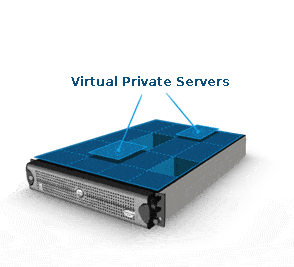 Piergiorgio Venuti
Piergiorgio Venuti
Server Cloud
server cloud
A cloud server or VPS (Virtual Private Server) is a fully-fledged server with its own operating system and well-defined hardware features only that unlike a classic server it shares physical resources with other virtual machines in this way more VPS can be run simultaneously on the same server (hypervisor).
This virtualization technique allows significant cost savings and an optimization of hardware resources as it is possible to run multiple operating systems on the same hardware.
Server Cloud – Pros cons
Pros:
♦ Migration: It is possible to “move” (migrate) a VPS from one server (hypervisor) to another (even without interruption of service).
Example: You have created a VPS on a hypervisor in Italy and you want to move it to a server in America. With a VPS, as long as the Cloud Provider has another Datacenter in America, this can be done quickly.
♦ Scalability: It is the possibility of increasing or decreasing the hardware resources (CPU, RAM, Disk, etc) without rebuilding the VPS and in some cases without restarting it in full transparency to users who use the services provided.
Example: A VPS of 2 cores, 1 GB of RAM and 20 GB of disk has been created but after a few months we realize that the RAM memory is insufficient for the services provided and it is necessary to increase it. With a VPS it is very easy to solve this problem, just increase the RAM from the configuration panel and the new configuration will be applied (in the case of linux systems without the need to reboot).
♦ Autoscaling: It is the possibility to increase or decrease the resources (scaling) automatically according to well defined hardware policies. This technique is extremely valid in cases of load peaks.
Example: A VPS has been created with 2 cores, 1 GB of RAM and 20 GB but in some periods of the year due to the high user access these resources are not sufficient, then in this case it is possible to configure these policies:
a) If the CPU is at 90% for more than 1h then the CPU of a core increases every 30min for a maximum of 6 cores and then if the CPU is less than 10% for more than 1h decrease the CPU of a core every 30 min up to a minimum of 2 cores.
b) If the RAM is 99% for more than 1h then increase the RAM of 1Gb every 30min for a maximum of 32Gb and then if the RAM is less than 50% for more than 1h decrease the RAM of a core every 30 min until at a minimum of 1Gb.
♦ Low cost: by comparing the cost of a VPS to that of a fiscal server like hardware resources, the cost of a VPS is much lower, especially considering that some cost items are already included in the VPS fee. :
a) Energy consumption;
b) Internet band;
c) Cost of public IP addresses;
d) Costs related to housing (cooling, surveillance, etc);
e) Firewall;
f) Technical assistance.
Cons:
♦ Shared resources: Depending on the configurations and characteristics of the Cloud Provider, some hardware resources, such as the CPU, could be shared so performance may be lower than a physical server. This condition is not always true as it is possible to request a 100% allocation on all hardware resources to your Cloud Provider.
Server Cloud – Limits:
- ♦ OS Virtualization: Not all operating systems and platforms can be virtualized (Eg AS400, Apple OS).
- ♦ Band: Although this is not an inherent problem of virtualization itself there could be latency differences in the Internet connection between a physical server in the company and a VPS if users are predominantly within the company and if the company has not an adequate Internet line.
Example: A physical server in the customer’s DMZ is accessed by its LAN users via a 10Gb line, if the server is virtualized and becomes a VPS at a Cloud provider, access to it is transmitted via the client’s Internet line which may be more slow.
Server Cloud – False myths:
- ♦ A VPS does not have the same performance as a physical server: By allocating 100% of the physical resources and correctly dimensioning a VPS the latter has nothing to envy to a physical server from a performance point of view.
- ♦ A VPS is less secure than a physical server: A VPS can have the same degree of security as a physical server because it is possible to adopt the same security measures (Firewall, Antivirus, Hardening, VPN) applicable to a Fiscal server.
Check out the Cloud Server
[btnsx id=”2931″]
Useful links:
IaaS | Cloud | Infrastructure as a Service
Let’s Encrypt Free Certificates for all Webhosting users
CloudFlare free Plesk extension for Webhosting users
Free Microsoft Windows licenses
Customers
Twitter FEED
Recent activity
-
SecureOnlineDesktop
Estimated reading time: 6 minutes L'impatto crescente delle minacce informatiche, su sistemi operativi privati op… https://t.co/FimxTS4o9G
-
SecureOnlineDesktop
Estimated reading time: 6 minutes The growing impact of cyber threats, on private or corporate operating systems… https://t.co/y6G6RYA9n1
-
SecureOnlineDesktop
Tempo di lettura stimato: 6 minuti Today we are talking about the CTI update of our services. Data security is… https://t.co/YAZkn7iFqa
-
SecureOnlineDesktop
Estimated reading time: 6 minutes Il tema della sicurezza delle informazioni è di grande attualità in questo peri… https://t.co/tfve5Kzr09
-
SecureOnlineDesktop
Estimated reading time: 6 minutes The issue of information security is very topical in this historical period ch… https://t.co/TP8gvdRcrF
Newsletter
{subscription_form_1}© 2024 Cyberfero s.r.l. All Rights Reserved. Sede Legale: via Statuto 3 - 42121 Reggio Emilia (RE) – PEC [email protected] Cod. fiscale e P.IVA 03058120357 – R.E.A. 356650 Informativa Privacy - Certificazioni ISO












